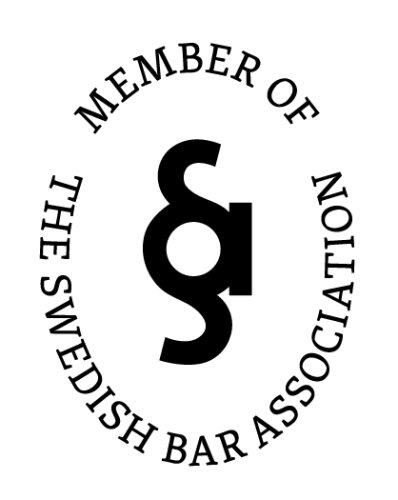Best Child Visitation Lawyers in Karlskrona
Share your needs with us, get contacted by law firms.
Free. Takes 2 min.
Free Guide to Hiring a Family Lawyer
List of the best lawyers in Karlskrona, Sweden
About Child Visitation Law in Karlskrona, Sweden
Child visitation, known as "umgängesrätt" in Swedish, refers to the legal rights and arrangements that allow a child to spend time with both parents or significant people in their life, even after separation or divorce. In Karlskrona, as in the rest of Sweden, the legal framework prioritizes the child’s best interests. The aim is to maintain the child’s connection to both parents, provided it does not harm the child’s wellbeing. Both parents are generally encouraged to collaborate and decide on visitation arrangements themselves. However, if parents cannot agree, local authorities or the courts may assist in making or enforcing visitation decisions.
Why You May Need a Lawyer
There are several situations where professional legal help may be necessary regarding child visitation in Karlskrona:
- If parents cannot agree on visitation schedules and need a formal, enforceable agreement
- Disputes regarding visitation frequency, duration, or specific dates such as holidays
- Concerns about the child’s safety or wellbeing in relation to visitation
- When one parent wishes to relocate with the child, affecting the other parent’s visitation rights
- If a parent is being denied visitation despite a previous agreement or court order
- Complex family circumstances, such as international elements or involving stepparents and grandparents
- Needing help navigating mediation or municipal family counseling services
- Enforcement of existing visitation orders through the Swedish Enforcement Authority
Local Laws Overview
The main laws regulating child visitation in Karlskrona and the rest of Sweden are the Swedish Parental Code (Föräldrabalken) and related sections of family law. Key aspects include:
- Child’s Best Interests: The core principle is always what is best for the child, not necessarily what the parents want.
- Right to Both Parents: Children are seen as having the right to regular and meaningful contact with both parents, unless there are compelling reasons otherwise (such as risk of harm).
- Agreements and Court Orders: Parents are encouraged to make written agreements. If needed, these can be validated by the Social Welfare Committee (Socialnämnden) or the court (tingsrätt) to make them legally binding.
- Mediation and Counseling: Local municipal Family Law Offices (Familjerätten) provide mediation and support for parents struggling to reach agreements.
- Enforcement: If a parent does not comply with a visitation agreement or order, the other parent can apply for enforcement via the district court or the Swedish Enforcement Authority (Kronofogden).
- Modification: Agreements and court decisions on visitation can be changed if circumstances affecting the child’s best interests change significantly.
Frequently Asked Questions
What is child visitation (umgängesrätt) in Sweden?
Child visitation is the legal right for a child to maintain contact and spend time with a parent or other significant individual they do not live with after a separation or divorce.
How are visitation arrangements usually decided?
Parents are encouraged to agree on arrangements themselves. If they cannot, they can seek help from local Family Law Offices or, as a last resort, have the court decide.
What factors do courts consider in visitation disputes?
The main consideration is the child’s best interests, including safety, emotional needs, stability, and a good relationship with both parents.
Can grandparents or other relatives be granted visitation?
In certain circumstances, courts can grant visitation rights to people who have had a close relationship with the child, such as grandparents, if it is deemed beneficial for the child.
Is mediation required before going to court?
It is not always required, but Swedish family law encourages parents to try mediation or local family counseling services before seeking court intervention.
What if one parent refuses to comply with a visitation agreement?
If an agreement is not followed, the other parent can apply for enforcement through the district court or the Enforcement Authority (Kronofogden).
Can visitation agreements be changed?
Yes, if circumstances change significantly, either parent can request mediation or ask the court to modify the agreement.
Does the child have a say in visitation decisions?
Yes, according to Swedish law, the child’s viewpoint must be considered and carries more weight as the child grows older, provided it aligns with the child’s best interests.
How is visitation handled if there is a risk to the child’s safety?
Visitation may be supervised or even denied if there are reasons to believe it would harm the child. The court can place restrictions to protect the child.
Can I get legal aid for child visitation disputes?
Depending on your financial circumstances, you might be eligible for state-subsidized legal aid (rättshjälp) to help cover the costs of legal representation.
Additional Resources
If you need more information or support regarding child visitation in Karlskrona, the following resources can be helpful:
- Social Services (Socialtjänsten) in Karlskrona: Provides family counseling, mediation, and support with visitation arrangements.
- Family Law Office (Familjerätten): Local office for mediation and drafting legal agreements on custody and visitation.
- Karlskrona District Court (Blekinge tingsrätt): Handles legal disputes, court orders, and enforcement matters related to child visitation.
- Swedish Enforcement Authority (Kronofogden): Assists in enforcing court-ordered visitation agreements.
- Swedish National Board for Health and Welfare (Socialstyrelsen): Offers guidelines and general information about child welfare and visitation rights.
- Swedish Bar Association (Advokatsamfundet): Directory of authorized lawyers specializing in family law and child visitation.
Next Steps
If you are dealing with a child visitation issue in Karlskrona, here is how to proceed:
- Begin by communicating openly with the other parent to reach an agreement, keeping the child’s best interests in mind.
- If you cannot agree, contact the local Family Law Office (Familjerätten) for mediation and assistance in drafting an agreement.
- If issues remain unresolved, consult a lawyer who specializes in family law and child visitation. They can advise you on your rights and help represent you.
- Explore the possibility of legal aid if you have limited financial resources.
- If necessary, be prepared to file an application with the district court to resolve the dispute or enforce an existing agreement.
- Always keep detailed records and communication regarding visitation, as this can be important if the matter goes before a court.
Lawzana helps you find the best lawyers and law firms in Karlskrona through a curated and pre-screened list of qualified legal professionals. Our platform offers rankings and detailed profiles of attorneys and law firms, allowing you to compare based on practice areas, including Child Visitation, experience, and client feedback.
Each profile includes a description of the firm's areas of practice, client reviews, team members and partners, year of establishment, spoken languages, office locations, contact information, social media presence, and any published articles or resources. Most firms on our platform speak English and are experienced in both local and international legal matters.
Get a quote from top-rated law firms in Karlskrona, Sweden — quickly, securely, and without unnecessary hassle.
Disclaimer:
The information provided on this page is for general informational purposes only and does not constitute legal advice. While we strive to ensure the accuracy and relevance of the content, legal information may change over time, and interpretations of the law can vary. You should always consult with a qualified legal professional for advice specific to your situation.
We disclaim all liability for actions taken or not taken based on the content of this page. If you believe any information is incorrect or outdated, please contact us, and we will review and update it where appropriate.










